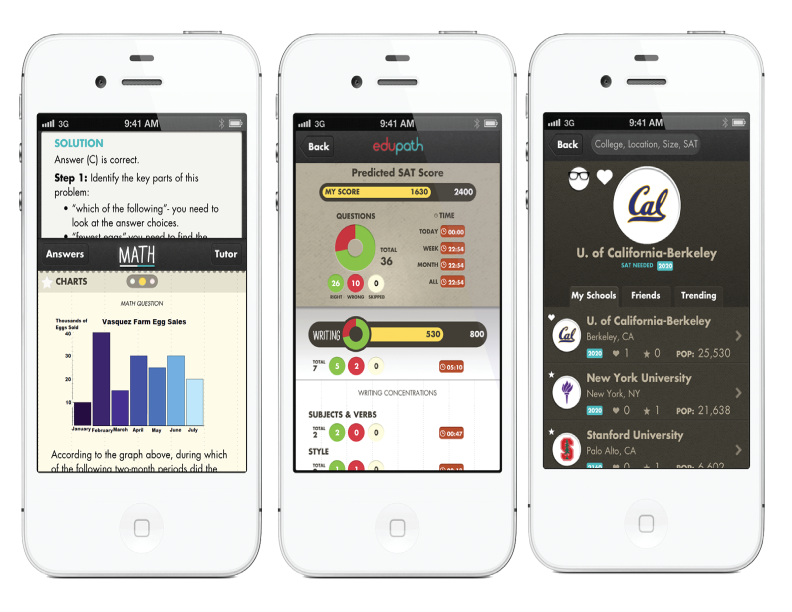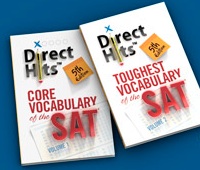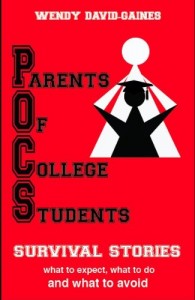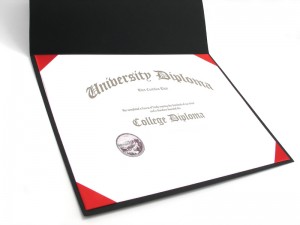About a year ago, I received a copy of Toward College Success: Is Your Teenager Ready, Willing and Able? Although I didn’t have the time to review it then, or pass the resource along to parents, I have since been able to take a look at it and it is an invaluable resource–a must read for parents of college-bound teens. This book is more than a college prep book. It’s a book that helps you prepare your teenage for life. It’s a book that helps parents guide their students toward independence and help them find the right path in life–even if it means that something other than college is a better path.
 Toward College Success: Is Your Teenager Ready, Willing, and Able? is a book to help parents of middle and high school students. This book prods parents to ask if their teenager will be ready, willing, and able to handle self-management, personal safety, roommate conflicts, personal finances, interactions with teachers, academic responsibility, and much more.
Toward College Success: Is Your Teenager Ready, Willing, and Able? is a book to help parents of middle and high school students. This book prods parents to ask if their teenager will be ready, willing, and able to handle self-management, personal safety, roommate conflicts, personal finances, interactions with teachers, academic responsibility, and much more.
Included in this book are numerous interviews with parents, college students, school counselors and advisors, law enforcement per- sonnel, teachers, medical personnel, and school administrators. At the end of each chapter are examples of how parents can prepare their teenagers for a successful college experience and turn their students into confident,reponsible young adults.
A workbook accompanies the text to give parents, school administrators, and counselors an opportunity to put this book into practical use. It will allow counselors, PTOs, parenting class facilitators, and others to work with par- ticipants to develop strategies to help their teenagers develop the skills needed to succeed in college and life beyond high school.
Here’s a short Q&A about the book:
Q: What is Toward College Success: Is Your Teenager Ready, Willing, and Able?
A: It is a book to spur parents to evaluate their teenager’s readiness for college, then actively prepare those teens for success.
Q: Who does the book target?
A: The book is for parents of middle and high school students because the skills their teenagers need to be successful in college need to be taught long before college begins.
Q: What kind of skills do teenagers need to be successful in college? A: They need both academic skills and life skills. What kind of life skills?
A: They need time and priority management skills, conflict management skills, and effective communication skills. They need to know when and how to ask for help, they need to ef- fectively maneuver the college bureaucracy, and they need to operate on a budget and manage their money. They need to self-advocate and have the self-discipline to stay safe.
Q: What kind of academic skills?
A: They need to start college with strong study skills. They need to be able to write a well-researched and documented, accurate, organized, and well-written paper. They need to start college prepared to attend all their classes, read the assigned materials, and know how to take notes. They need to be prepared to pursue study groups, additional review periods, or other options such as seeking out their teachers when they have questions and need help.
Q: What can parents do to help prepare their teenagers?
A: Model behavior they want to see—both for academics and life skills. Parents should be involved in their teenager’s school by participating in parent-teacher meetings and similar events, judging their student’s academic strengths and weaknesses, and pushing them to get help when they need it. Parents should make expectations and rules clear for both academics and behavior, and follow through on reasonable consequences. Parents should give their teenagers graduated responsibilities, teach them to budget, and make them responsible when they make mistakes.
Q: What does it mean to be ready, willing, and able?
A: Teenagers need to be ready with the maturity required to face life on their own, the will- ingness to go to college, and have the skills they will need to be able to succeed.
Q: What if a teenager isn’t ready or willing to go to college?
A: Parents should understand that college right after high school is not the best path for every teen. There are lots of alternatives, including organized gap time, apprenticeships, working full time, the military, or a combination that includes taking a course or two at a community college. The most important role for parents is to help their teenager find a path to success.
Q: How was this book conceived?
A: The late Patricia Wilkins-Wells was a professor of sociology at the University of Northern Colorado. She grew frustrated over the years as she watched too many of her students fail because they were not prepared for their new learning and living environments in college. Wilkins-Wells asked Carol Jones to join her in this effort because of Jones’ writing and editing ex- perience, and because she worked as a secondary school writing coach and compositional aide. Both Wilkins-Wells and Jones believed that parents needed a resource to help them start prepar- ing their children to be successful in what they would encounter after high school.
If you find yourself asking these questions and struggling with your teenager about their future, P. Carol Jones has the answers and the guidance to help.
Read P. Carol Jones’ post on Preparing your Teenager for College
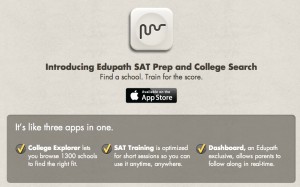 Edupath is like three apps in one. College Explorer lets you browse 1300 colleges to find the right fit. SAT Training is optimized for short sessions so you can use it anytime, anywhere. And Dashboard, an Edupath exclusive, allows parents to follow along in real-time.
Edupath is like three apps in one. College Explorer lets you browse 1300 colleges to find the right fit. SAT Training is optimized for short sessions so you can use it anytime, anywhere. And Dashboard, an Edupath exclusive, allows parents to follow along in real-time.
